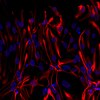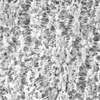QIA68 IL-8 Accucyte® EIA Kit, Human
Recommended Products
Overview
| Replacement Information |
|---|
| References |
|---|
| Applications |
|---|
| Biological Information | |
|---|---|
| Assay range | 0.098 - 100.0 ng/ml |
| Assay time | 5 h |
| Sample Type | Serum, plasma, serum-free biological samples, tissue culture media |
| Physicochemical Information | |
|---|---|
| Sensitivity | 0.098 ng/ml |
| Dimensions |
|---|
| Materials Information |
|---|
| Toxicological Information |
|---|
| Safety Information according to GHS |
|---|
| Storage and Shipping Information | |
|---|---|
| Ship Code | Blue Ice Only |
| Toxicity | Multiple Toxicity Values, refer to MSDS |
| Storage | +2°C to +8°C |
| Do not freeze | Yes |
| Packaging Information |
|---|
| Transport Information |
|---|
| Specifications |
|---|
| Global Trade Item Number | |
|---|---|
| Catalog Number | GTIN |
| QIA68 | 0 |















